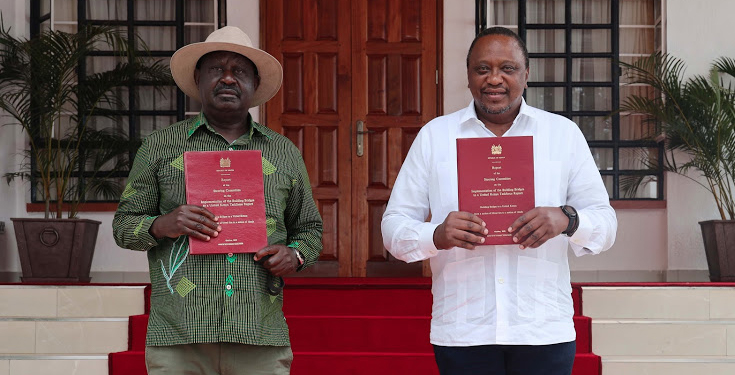BBI faces fresh political and legal headwinds

The desire by President Uhuru Kenyatta and Opposition Leader Raila Odinga to introduce constitutional amendments under the Building Bridges Initiative has run into new headwinds of a political and legal nature.
The political ripples have been created by two important moves made by Kakamega Governor Wycliffe Oparanya who has announced his presidential ambition under the ODM ticket where he serves as Raila’s deputy. He has also recently made an intriguing overture to Deputy President William Ruto who is widely viewed as the nemesis to the BBI political axis.
What appears to complicate the field for the BBI proponents is the fact that three senators who are key allies and advisors of Raila and ODM have expressed views that appear to gel with those who have previously questioned the initiative.
The intrigue heightened with the pronouncements by ODM stalwarts Siaya Senator James Orengo and MPs Otiende Amollo (Rarieda) and TJ Kajwang’—all members of the joint Justice and Legal Affairs Committee that was considering the Bill— that amendments were necessary.
Eleven MPs from Luo Nyanza and the same ODM political extract, have an opposite view that the BBI Bill should be passed as it is.
Whichever way the constitutional amendments go, any intrigues at this stage could delay the process which is already hard-pressed for time given that in approximately eight months’ time, the country will have turned its attention to the General Election.
The Covid-19 pandemic is also another factor that has placed a lid on the popularization of the BBI effort with the banning of political rallies across the country. Political rallies have been partly blamed for the grievous rise of cases in India and Kenya is keen to avoid a similarly treacherous path.
Minority Leader James Orengo kicked off the storm in Parliament when he said that the august House’s role cannot be merely ceremonial.
“People think that Parliament is just a legislature. According to this Constitution, Parliament is more than a legislature, indeed, if the role was to rubber-stamp, you’d need more ink than brains,” he charged. “There are people out there who are telling us to support this report as if there’s anybody saying something different. We have a role to play to examine policy issues as a Parliament on behalf of the people.”
But Minority Whip Junet Mohammed says the process of collecting more than four million signatures already covered public participation.
“There is no more public participation than subjecting it through a referendum, let us send the Bill to Kenyans to vote in a referendum. I don’t want my Bill to be mutilated by this House, I laboured to get the four million signatures,” said Junet. “I went round the country looking for the signatures; I went ahead and hired a team of experts to look at the Bill and forwarded it to IEBC to verify the signatures and later took it to the 47 counties and I managed to convince 43 counties to support it.”

